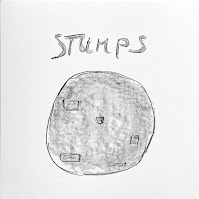By Antonio Poscic
Dutch saxophonist and composer Jorrit Dijkstra has had a fruitful and successful year. While he appeared on quite a few excellent releases (such as "New Crosscurrents - Live Bimhuis Amsterdam"), the record that piqued my interest the most was “Music for Reeds and Electronics: Oakland”. Daring, brave, and exploring uncharted territory (at least to my knowledge), it was one of my picks for most innovative record of 2014.
Dutch saxophonist and composer Jorrit Dijkstra has had a fruitful and successful year. While he appeared on quite a few excellent releases (such as "New Crosscurrents - Live Bimhuis Amsterdam"), the record that piqued my interest the most was “Music for Reeds and Electronics: Oakland”. Daring, brave, and exploring uncharted territory (at least to my knowledge), it was one of my picks for most innovative record of 2014.
Indeed, a reed quintet enriched with electronics is not something you encounter every day. Dijkstra and his outstanding, experienced collaborators, Phillip Greenlief, Kyle Bruckmann, Frank Gratkowski, and Jon Raskin, present us with an imaginative and peculiar take on the format. As Dijkstra himself notes, this album melds experimental music with short compositions that connect the textural possibilities of reeds and electronics. Free jazz, free improvisation, electronic music, noise, and modern chamber music all converge in a set of 10 inspired tracks.
The quintet’s approach comes across as if each aforementioned style has been meticulously sewn into the others. Modern chamber music compositions provide the basic structure which is then mutated with shades of free jazz phrasing, analog and drone-like electronics, and improvisations. Even though it might appear as such at first glance, this is not a work of hermetic inaccessibility. Of course, it’s not lush either, but rather minimalist, coming closer to current experimental electronic music tendencies than jazz. There’s a sense of strange, idiosyncratic beauty in this intellectually challenging endeavor highlighted by occasional touches of groovy rhythms and melodies (“Feuilles Vertes”). On most tracks, the music eschews categorization. As an anonymous commenter reflected on the “Happy New Ears” award a few years back, the adjective “innovative” is nowadays quite often tied to electroacustic meanders. In that context, this record is no exception.
While as a whole everything works out nicely, there are two minor issues. The first of those is that the especially alluring dialogs between reeds and electronics are not present on all songs. Case in point, the album opens with two tracks played by reeds only, while the really interesting parts “kick in” on the third track “Easel” when the electronic instruments perform for the first time. The interactions, struggles, and counterpoints between reeds and electronics are surely the most compelling aspect of this album. For proof of that, look no further than the tracks “Headlands”, “Lope”, and “Veg”. The other thing that bothered me a bit is related to the very format and arrangement of this album. It’s comprised of short, individual compositions that feel fragmented and disconnected from one another, each revealing a separate world of ideas, all functioning without a binding, collective thread. At times, this can spoil the listener’s immersion in the music. Nonetheless, these are minor quibbles that we might as well disregard.
While “Music for Reeds and Electronics: Oakland” is a great record, there’s still room for improvement. Since this is only the first of three planned releases in the series, we’ll see what Dijkstra and his cohorts have in the bag for us on “Amsterdam” and “Chicago”. The bar has been set very high.

















0 comments:
Post a Comment